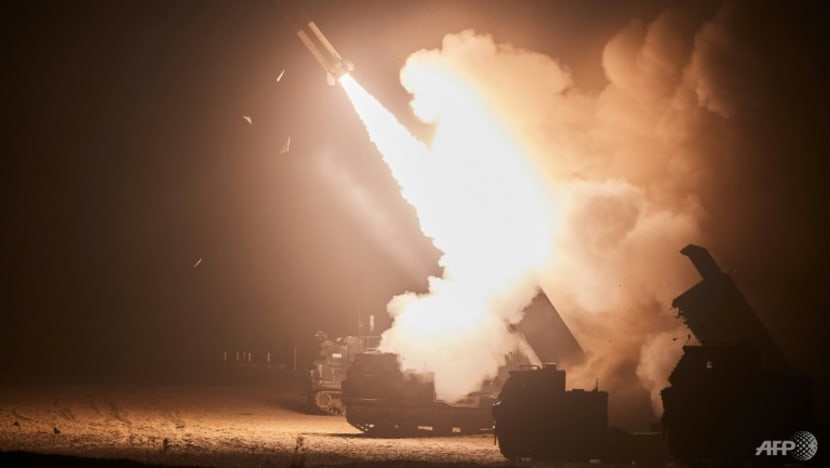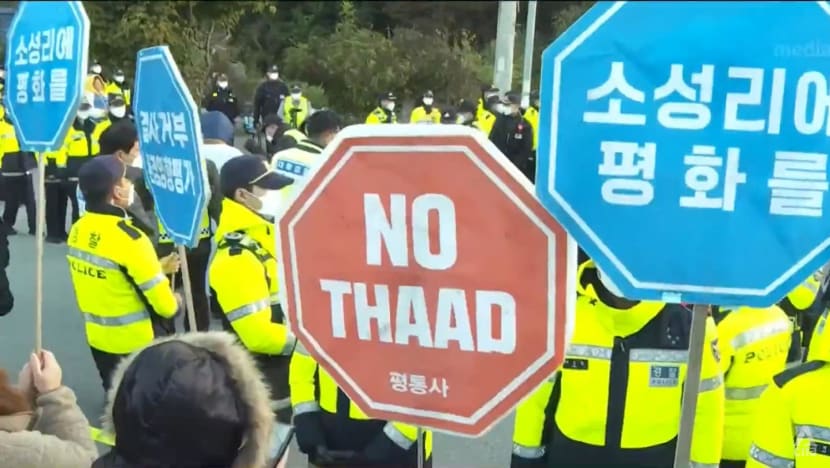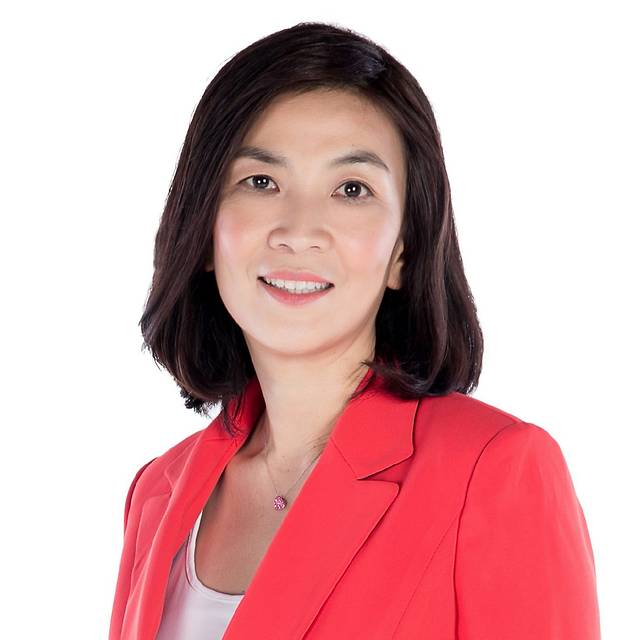South Korea watches US mid-term elections in face of North Korean missile threats
A Republican win would likely see a more isolationist American approach to foreign affairs, constraining the Biden administration's actions in South Korea.

SOSEONG-RI, South Korea: As the number of North Korean missile tests hit a record high this year, South Korea is looking towards the US for support in the face of the security threat, but the upcoming US mid-term elections could throw a spanner in the works.
South Korean President Yoon Suk-yeol’s administration has been eager to put up a united front with the US against its hostile neighbour, including expanding the presence of the Terminal High Altitude Area Defense (THAAD) system on South Korean soil.
It deems the anti-missile system, first installed in 2017, an essential part of the country’s robust defence posture towards the North.
However, the outcome of the US mid-term elections later this month may impact Washington's commitment to the region. A Republican win would likely see a more isolationist American approach to foreign affairs - a constraining factor for the Biden administration and its actions in South Korea.
Furthermore, not all South Koreans welcome American involvement in the security affairs on the Korean peninsula, with fears they may become a target in the geopolitical crossfire.
UNWELCOMED
The South Korean government recently said it was considering expanding the deployment of the US missile defence system near Soseong-ri, a quiet farming village in the country’s southern region, and locals have since been holding protests against the move.
The villagers have also been attempting to prevent construction materials or US military vehicles from entering the THAAD facility, in order to disrupt its operations.
Similar rallies, where locals chant slogans such as “This is our land. We can’t let the US take it away”, were previously held in September 2016 when a golf course in Soseong-ri was chosen as the site for THAAD. Protests subsided only after the government promised the site would not be expanded.
The locals said they oppose the missile defence system as they feel it would make their village a primary target for North Korea in the event of an attack, along with possible retaliatory measures by neighbouring countries such as China.

"This directly threatens peace on the Korean peninsula. We are simply jumping into the hegemony of the US and China. It’s called a defence system, but the stronger the defence system, China and Russia will build even stronger offensive weapons to break through it,” said Mr Lee Jong-hee, co-chairperson of the Seongju Struggle Committee for Withdrawal of THAAD.
“If a war breaks out, the first target in South Korea will be the THAAD base here."
US MID-TERM CONTEST
As the US mid-term elections loom, analysts say tensions may continue building up in the Korean peninsula, as the Biden administration will want to adopt a strong posture heading into the contest.
"Of course, the public opinion in the US will be for a stronger policy against North Korea. And eventually, around the mid-term elections, it is highly possible that the Biden administration will make stronger remarks against North Korea and take a tougher stance,” said Korean Institute for National Unification research fellow Hong Min.
He added that while the door for diplomatic dialogue remains open for now, it could soon be replaced by a much more hardline stance.
The outcome of the elections will also have an impact on the US policy in the Korean peninsula.
Mr Scott A Snyder, a senior fellow for Korea Studies and director of the programme on US-Korea Policy at the Council on Foreign Relations, said a strong showing by the Republicans would become a constraining factor for the Biden administration, as they tend to adopt a more isolationist approach to foreign affairs.
However, Mr Snyder still sees broader geopolitical issues, along with the growing perception of threats within Washington, as bigger factors shaping the US response to North Korea, beyond just the electoral outcome.
THE NORTH KOREAN FACTOR
Pyongyang has carried out a flurry of missile tests in the past few months. Since leader Kim Jong Un took power, this year has seen the highest number of missile launches by North Korea – higher than the three previous years combined.
Mr Snyder said the North is pursuing its goals of military modernisation and missile development, which it established back at its party congress in January last year.
However, these run counter to what the US and the international community have allowed in terms of sanctions and prohibitions on missile launches, he said.
He added: “A lot of these short-range tests really have focused on South Korea, and North Korea has mentioned the idea of fielding a tactical nuclear weapon for battlefield use. That, I think, directly relates to growing tensions and almost a preemption competition between the two Koreas.”
North Korea is also taking advantage of the US focus on China and Russia, to pursue its missile development programme, noted Mr Snyder.
“The problem is that the North Koreans, despite persistence and outreach from the Biden administration for dialogue, have spurned all those efforts. And I think that's primarily because they don't like the agenda,” he said.
He explained that the Biden administration wants to talk about denuclearisation, but the North Koreans want to engage in discussions on the basis that North Korea is a legitimate and responsible nuclear state.
Mr Snyder said that North Korea would likely be looking towards the 2024 US presidential election rather than the upcoming mid-terms, to re-establish relationships.
The primary reason for that is the hope that somebody who has a direct personal relationship with leader Kim Jong Un - maybe even President Trump - could come back and lead the relationship in a different direction, he said.
















